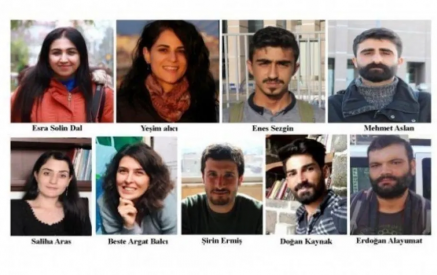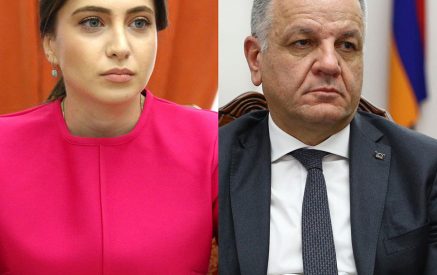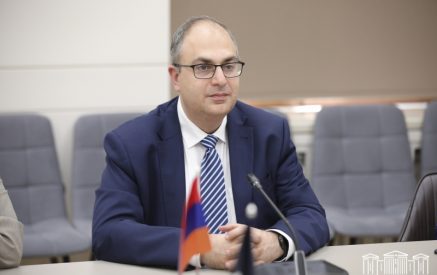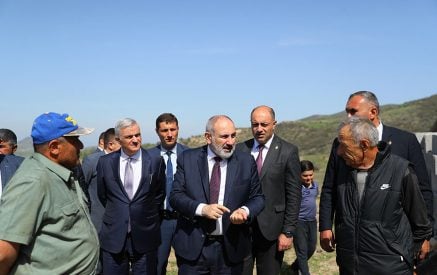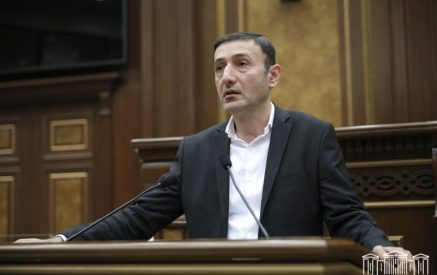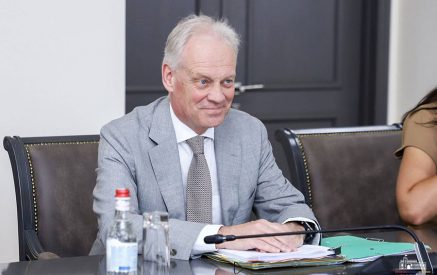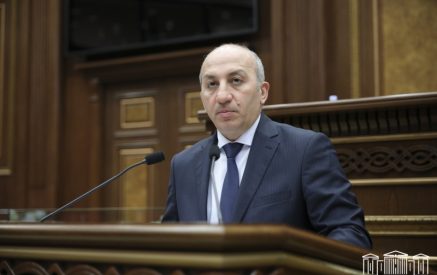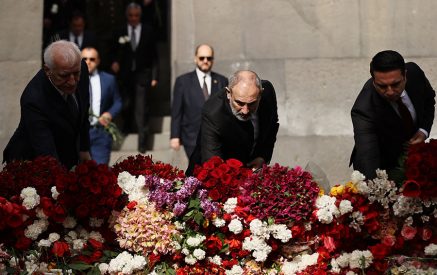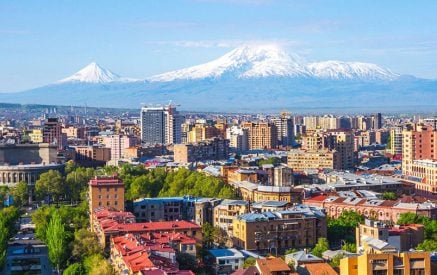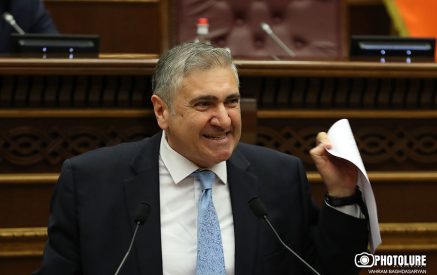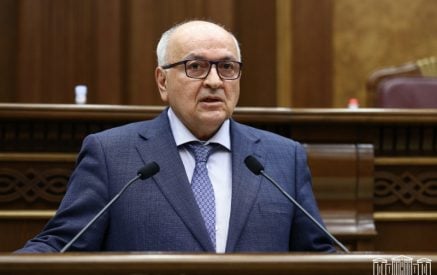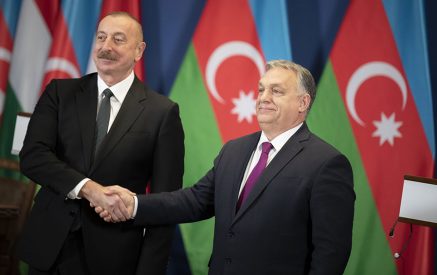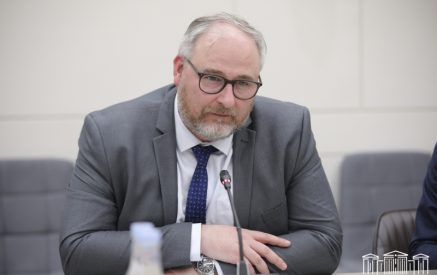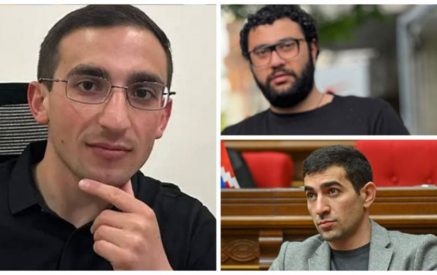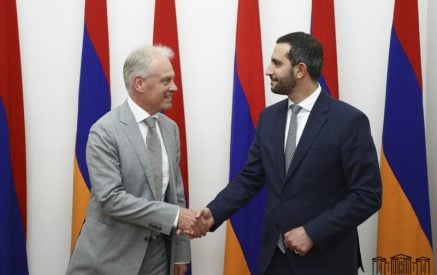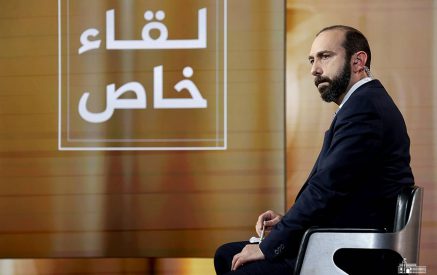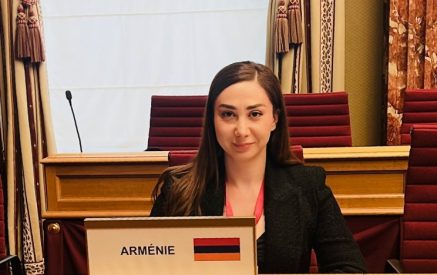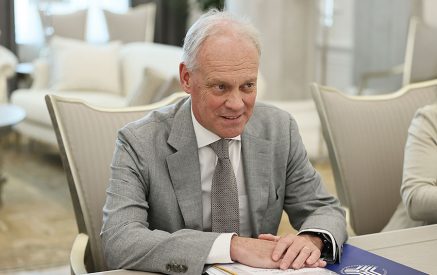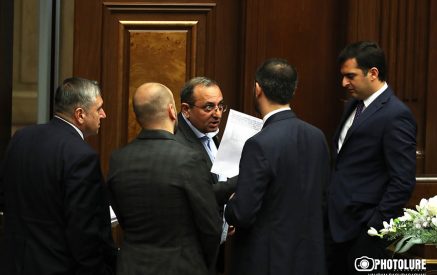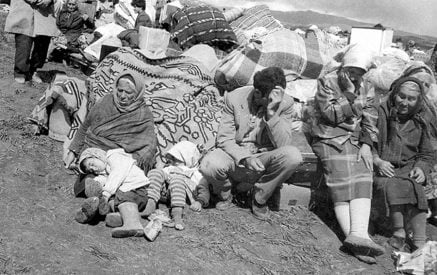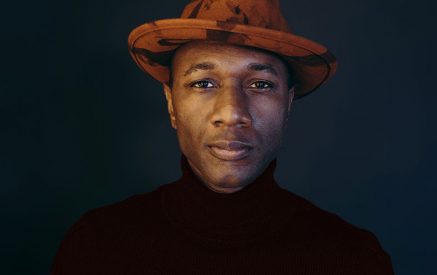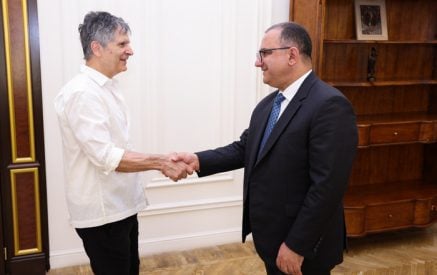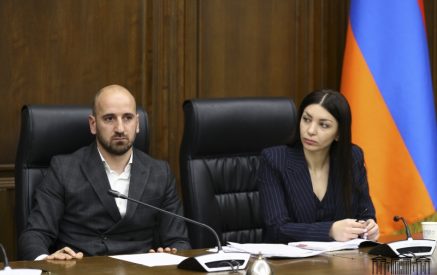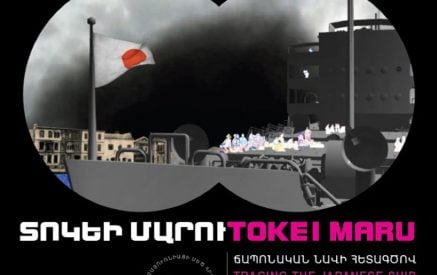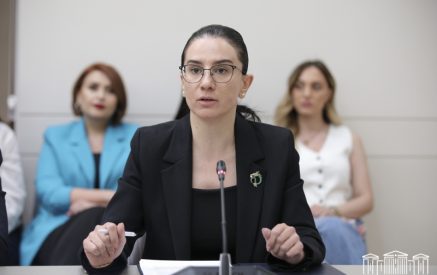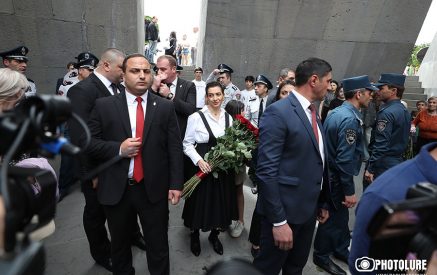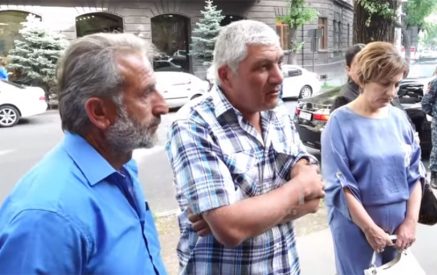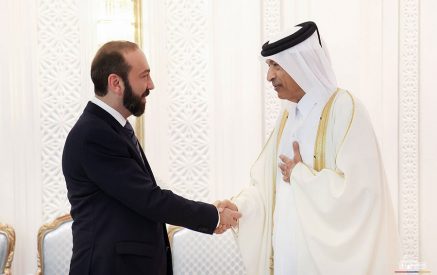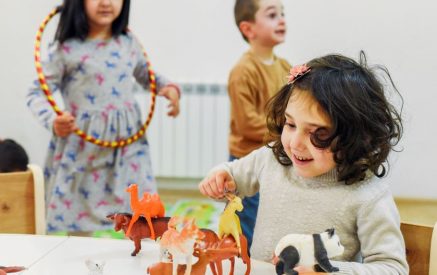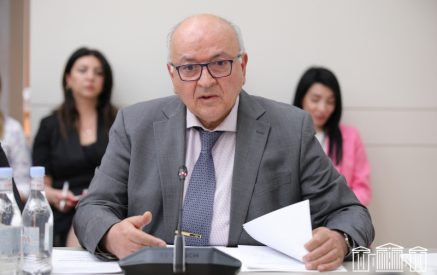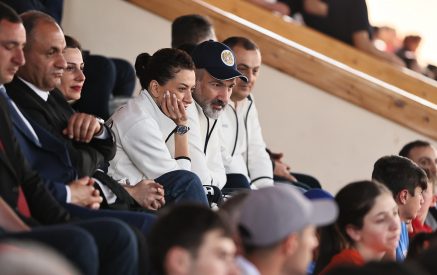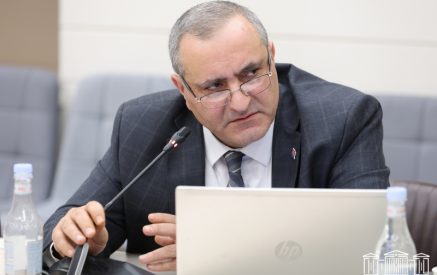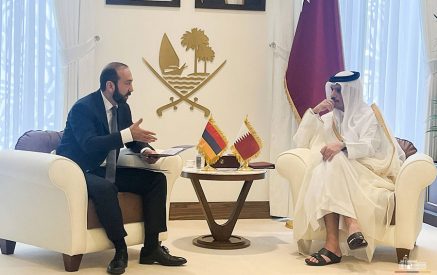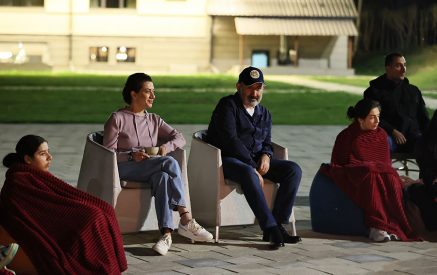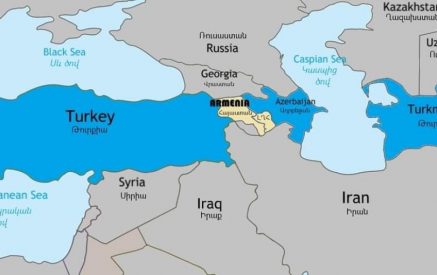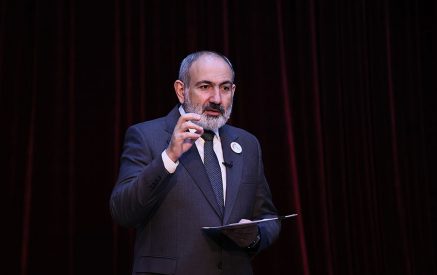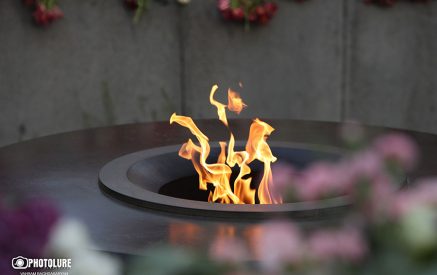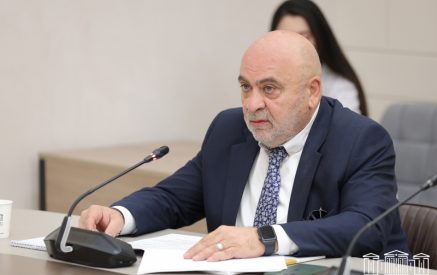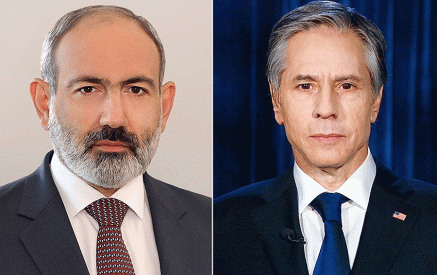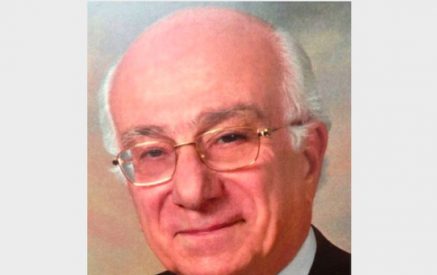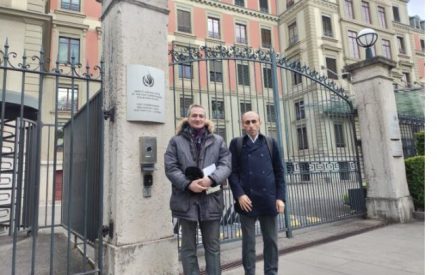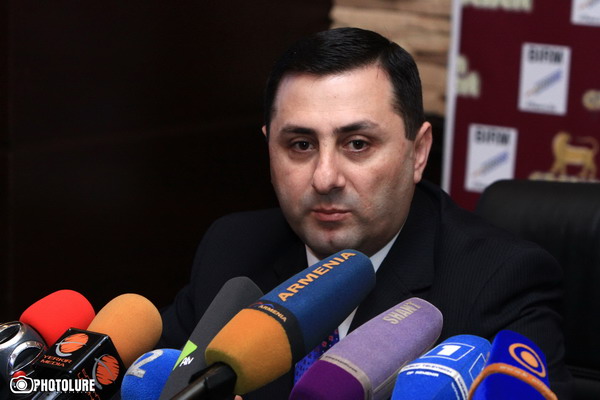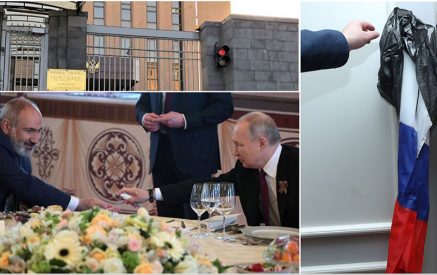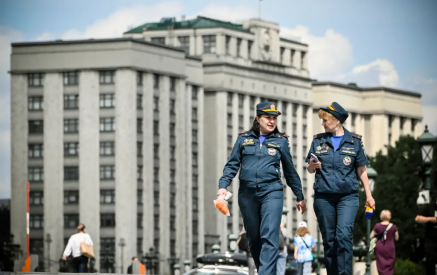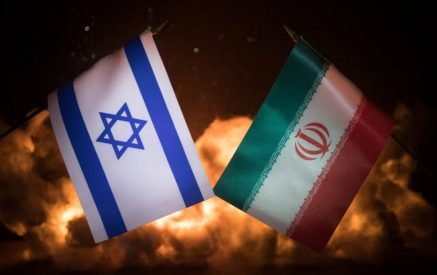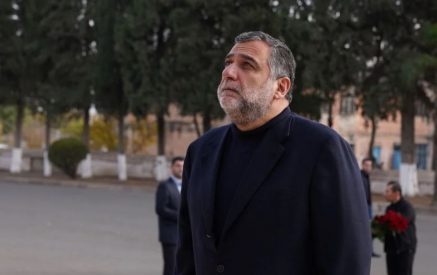Chairman of the NA Foreign Relations Committee, Republican MP Samvel Farmanyan about the prospects of Armenia-EU relations
– The European Commission has received a mandate to negotiate with Armenia. Given the experience of previous negotiations failure, do the RA authorities now have a clear vision of the process of the negotiations and the outcomes? Were debates held in the ruling Republican Party on this matter?
– The approach of the government authorities on Armenia-EU future relations and Armenia’s European agenda are very clear and were repeatedly stated, here, it is difficult to say anything new. Armenia as a source of European civilization, as a bearer of European culture and as a country with a European perspective, considers the further deepening of relations with the EU as an important priority and is ready to deepen these relations, also taking into account the international commitments that our country has undertaken. To put is more simply, we are interested in having a comprehensive partnership in all possible spheres, where there are mutual benefit and interest, the basis of which should underlie in the new legal-contractual document formed as a results of negotiations. Fortunately, due to Armenia’s accession to the Eurasian Union, once the existing misunderstood wall is already destroyed, and the parties are approaching the new phase of talks with serious expectations and positive sentiments.
– You are the Head of the Armenian delegation to the Armenia-EU Parliamentary Cooperation Committee. At this stage, which should, in your opinion, be the priorities for Armenia-EU cooperation? There is a view that the political element of the Association Agreement can be immediately presented for signing. Is it a realistic approach?
Read also
– The point that the political element of negotiated document, if not completely, then largely, will find a place in the negotiated agreement I have no doubt. There might be cosmetic changes, which is understandable, however, this one is not an Association Agreement. I consider cooperation in all the spheres important that will help Armenia to build a European future. By saying a European future, I mean such a state which with its public living quality, the degree of welfare, institutions, and the rules of the game is close and similar to the requirements for the EU member states.
In the upcoming negotiation process, one of the most important factors is that in the current geopolitical realities, three of the six Eastern Partnership countries have signed the Association Agreement, while the remaining three – not. But these three countries: Armenia, Azerbaijan, and Belarus, have different levels of relationships and expectations from the EU. Fortunately, the Riga Summit reported the need for running a differentiated policy, a circumstance that has always been raised by the Yerevan officials. Therefore, I expect that the elaborated new legal-contractual basis will stem from the logic of differentiated policy, which automatically will lead to a new quality level of parliamentary cooperation.
– How do you visualize the EU-RA economic cooperation, as it is clear that there can be no word about the Deep and Comprehensive Free Trade Area in new agreement?
– The economic cooperation with the EU is one of the most important sectors. It is natural that to expect what previously was available is objectively impossible. But the EU has different instruments for economic cooperation with its partners. The sentiments of the Armenian side are to have the maximum economic cooperation based on the reality that we are a member of the Eurasian Economic Union, and also from the fact that Turkey, as a state within the same customs territory with the EU, continues keeping the border with Armenia illegally closed.
– The EU-Armenia previous talks lasted enough long. What is the mode of the new talks?
– I do not think it will last very long. The previously negotiated text will be very helpful for the two negotiating teams in that respect. Let us not forget that at the end of the previous phase of the negotiation, the EU and Armenia had already officially ratified their common approaches on many issues with their signatures.
– In the last few days, the European Parliament’s representatives were in Armenia. They also had concerns about the fact that Armenia will again impose to pressure by Russia. Are the lessons learned from the past? What are the guarantees that Russia’s “jealousy” will not reach the peak again?
– No such pressure was imposed on Armenia by Russia. Never. The problem is that each state is guided by its own interests, and to accuse the United States, Russia, Armenia, Sweden or Japan to be guided by their own interests is nonsense. Armenia has been honest in its objectives when running an EU Association Agreement talks, and when deciding on the membership to the EaEU. In its decision, Armenia has put solely its own country interests and nothing else. Do not be surprised, but now, when the Ukrainian events are in the past, and after that, by large, an application for the formation of a new world is presented and a cold war is underway, very few people in Armenian political field still continue disputing the righteousness of the President Sargsyan’s decision. Today, too, Armenia is honest in its statements and objective to elaborate a new legal-contractual base with the EU. Armenia stems solely from its personal interests and makes decisions solely in this context. In addition, let’s not forget that the agreement operating for sixteen years is outdated as a document and needs revision.
Interviewer Nelly Grigoryan,
“Aravot” daily

